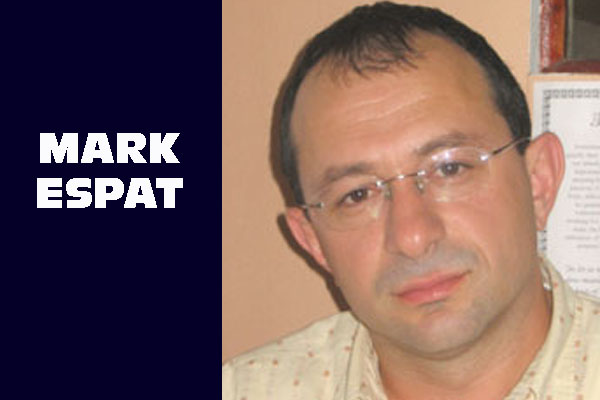“…fetters for unscrupulous lenders.”
“Usable credit facilities that parade the halls of power of developed countries’ corridors should have been forthcoming to Belize. But Belize was simply too small to save…” – Ambassador Mark Espat
Belize was represented by Ambassador Mark Espat at a special high-level meeting of the Economic and Social Council (ECOSOC) of the United Nations (UN) with the Bretton Woods institutions, the World Trade Organization (WTO), and the UN Conference on Trade and Development (UNCTAD), which took place on Monday, 22 April 2013 at the UN Headquarters in New York, USA.
The overall theme was “Coherence, coordination and cooperation in the context of financing for development and the post-2015 development agenda.”
The event included a high-level interactive panel discussion with Ministers of Finance and Development Cooperation; governors of central banks and inter-governmental representatives at the ministerial level on the topic: “World economic situation and prospects in the wake of the world financial and economic crisis.”
It also featured thematic debates on “Financing for sustainable development, including leveraging of private capital, in the context of the follow-up to the outcome of the Rio+20 Conference” and “Global partnership for development in the context of the post-2015 development agenda”.
Espat said that “Belize was invited to participate in the ECOSOC meeting principally because of the recent debt operation and the relevance of Belize’s experience to the dialogue between ECOSOC/the UN and the IMF/WB.”
He added that the functions of the multilateral financial institutions, in the context of the recovery from the Great Recession and the subsequent debt/growth crisis, were at the core of the gathering.
“Our recent debt restructuring, concluded on 20 March 2012, affords Belize a unique vantage point from which to assess the multilateral ‘emergency room services’ available to the swelling ranks of countries afflicted by the lethal brew of high debt and low growth. Mr. Chairman, we come as friends but these MFI [multilateral financial institution] facilities are shamefully inadequate for small states,” Espat said in his address to the gathering.
He said that with 360,000 citizens and an economy of US$ 1.6 billion, Belize is a great little nation, epitomizing middle-income, small and vulnerable.
Belize was able to weather the raging storms of the Great Recession with confidence, grit, focus, and refreshing Belizean optimism, without any extraordinary support from multilateral institutions, Espat said, adding that “Belize not only avoided economic contraction, but last year she registered a remarkable 5.3% GDP growth.”
He said that the country’s recent debt operation underlines a tale of two extremes.
“On the one side is a system that rewards the profligacy of developed countries with massive amounts of bilateral and multilateral money to repay and protect creditors of developed nations. At the other extreme, small states, like Belize, are left to restructure their debt unaided, and without a dime of direct assistance from multilateral or bilateral sources. EXTREMES, Mr. Chairman, NEVER LAST, NEVER SUCCEED,” he commented at the ECOSOC meeting.
He recalled that even with an approach supported by Belize’s private creditors, a formal IMF Fund Program was the only option offered.
Belize asked only for a partial guarantee from the Inter-American Development Bank for the restructured debt, collateralized by the future flow of official sector oil income, but the help was not forthcoming, the Belize rep indicated.
He said that “…all we got was a demand to implement policies that would have amplified the impacts of the recession and driven more Belizeans into poverty.”
Espat pointed out the contrasting manner in which the IMF responded to the UK, demanding less austerity from the UK.
“Usable credit facilities that parade the halls of power of developed countries’ corridors should have been forthcoming to Belize. But Belize was simply too small to save,” he commented.
In the presentation, Belize advocated for a few priorities, among them that: “Solutions must be tailored to small states, a case that was put forward, in the instance of the Caribbean, in 1965 by an early president of the CDB, William G. Demas. The UN General Assembly provides the optimal anti-club model, guarding against the rule of the jungle,” he said.
Global economic governance ultimately rests upon constructive engagement and judicious deliberation. Opportunities for sovereign states as equals to make use of a broader mix of development financing and debt instruments are critically important.
Espat, who led Belize’s last two debt restructuring efforts for Belize, said that, “In most instances, unsustainable debt was unsustainable from the outset of lending.”
He said that global economic management must match the fetters now available for borrowers with fetters for unscrupulous lenders.

